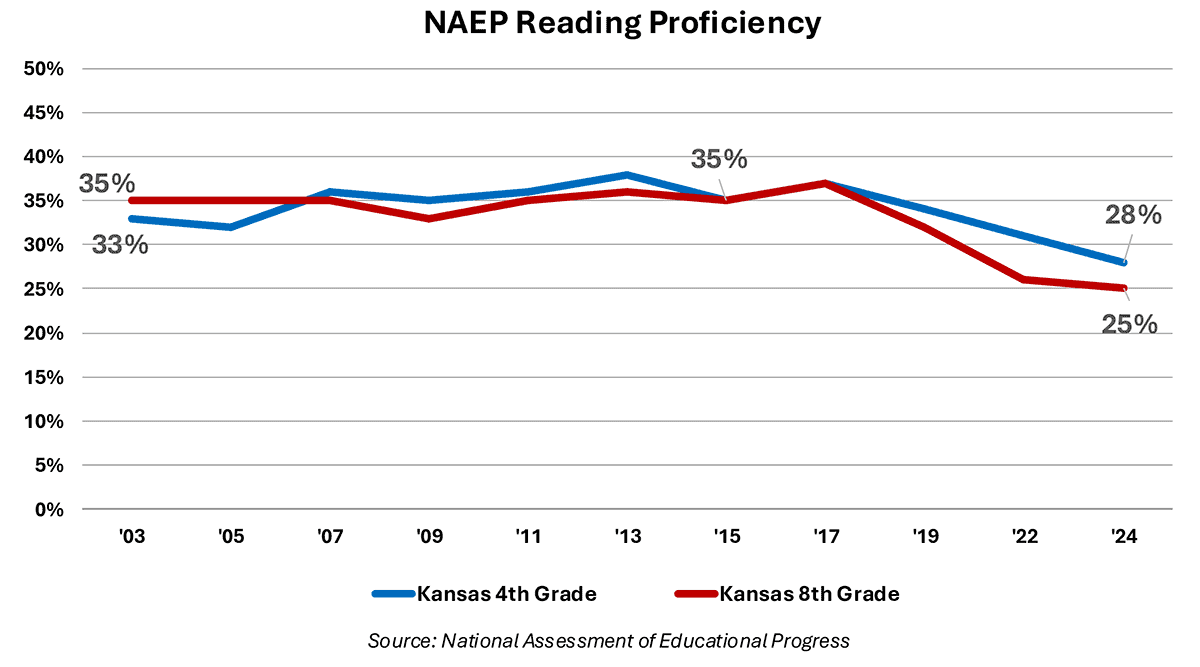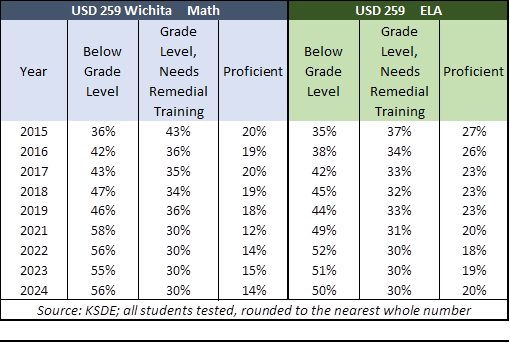On April 3, 2025, Secretary of Education Linda McMahon and the United States Department of Education sent a letter to all state departments of education demanding that they certify all K-12 schools in their states are complying with an earlier letter banning all Diversity Equity and Inclusion (DEI) activities and practices — or lose federal funding.
But the Kansas State Department of Education is treating the matter as a “request” and won’t say if it will comply — despite the looming April 13 deadline.
“The request is still under consideration and no decision on future action has been made yet,” KSDE Spokeswoman Denise Kahler said via email.
But failure to act could result in a loss of federal funding for districts across the state.
“Federal financial assistance is a privilege, not a right. When state education commissioners accept federal funds, they agree to abide by federal antidiscrimination requirements,” Acting USDE Assistant Secretary for Civil Rights Craig Trainor said. “Unfortunately, we have seen too many schools flout or outright violate these obligations, including by using DEI programs to discriminate against one group of Americans to favor another based on identity characteristics in clear violation of Title VI.”
The new demand stems from a February 14 “Dear Colleague Letter” (DCL) to educational institutions receiving federal funds notifying them that they must cease using race preferences and stereotypes as a factor in their admissions, hiring, promotion, scholarship, prizes, administrative support, sanctions, discipline, and other programs and activities. Two weeks later, the Office for Civil Rights published Frequently Asked Questions to anticipate and answer questions that may arise in response to the DCL.
Title VI of the Civil Rights Act forbids federal funding for programs that discriminate on the basis of race.
According to the Daily Wire the letters are “meant to ensure that states comply with the majority decision in Students for Fair Admission v. Harvard, which ruled that affirmative action admission programs at universities were unconstitutional because they violated equal protection under the law.
“No student should be denied opportunities or treated differently because of his or her race,” Trainor said. “We hope all State and Local Education Agencies agree and certify their compliance with this legal and constitutional principle.”
KSDE has until April 13, 2025 to sign a certification signifying that they reached out to all local education agencies in their states and agreed to comply with Title VI and the Supreme Court affirmative action decision — DEI programs are specifically singled out as being problematic.
“Given the text of Title VI and the assurances you have already given, any violation of Title VI — including the use of Diversity, Equity, & Inclusion (“DEI”) programs to advantage one’s race over another — is impermissible,” the letter reads. “The use of certain DEI practices can violate federal law. The continued use of illegal DEI practices may subject the individual or entity using such practices to serious consequences.”
Those consequences include a loss of federal funding and “substantial liabilities,” including litigation from the United States Department of Justice to recover federal funds already paid.
Academics or politics?
General Counsel Scott Gordon addressed the issue with the State School Board at its April 8 meeting, questioning whether USDE has gotten permission from the Office of Management and Budget (OMB) to collect what he referenced as “data.”
Certification of compliance with federal law and USDE funding requirements hardly qualifies as “data,” however. Kansas Policy Institute CEO Dave Trabert says hesitancy to ask school districts for certification of compliance seems politically motivated.
“First of all, what in the world is wrong with certifying that one will comply with federal law? School districts routinely agree to comply with funding requirements in state and federal grants. Hesitating to do so in this circumstance at least gives the appearance of wanting NOT to comply.
“An underlying premise of DEI is that it will lead to better student outcomes, but that clearly has not been the case. The recently released NAEP (National Assessment of Educational Progress) shows continual performance decline, and Kansas now has more fourth-graders reading Below Basic (40%) than Proficient (33%). The State School Board should tell KSDE to proceed with certifying compliance with federal law and the removal of DEI.”

Kansas Policy Institute is The Sentinel’s parent company.
At the State Board retreat on Monday, board Vice Chair Danny Zeck said emphasizing other things over academics is not working.
“What we’re doing now … is not working. We need to get down to the basic stuff for these kids — that they can read and write and do arithmetic and maybe there’s some computer skills and go from there.”
Unfortunately, the State Board took no action Tuesday on the matter.
[This story was originally posted on The Sentinel. View it here.]






